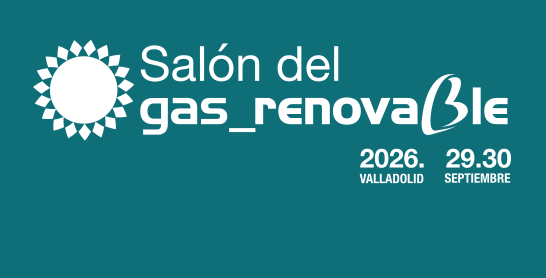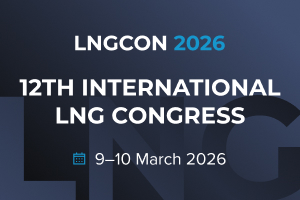The importance of biomethane certification

ERGaR facilitates the cross-border trade of renewable gas certificates across Europe. At the moment, seven countries are connected to the ERGaR CoO (Certificate of Origin) scheme and, via ERGaR, certificates can be traded between these countries. They are Germany, Denmark, Netherlands, UK, Switzerland, Slovakia and Austria.
As well as enabling and co-ordinating cross-border trade, ERGaR functions as the European association for all stakeholders in the biomethane certification supply chain. ERGaR currently has 44 members from 14 European registries. The organisation aims to make the trading of biomethane certificates easier for those members.
Biomethane certification is useful for several reasons. It verifies sustainability; confirms greenhouse gas reduction; supports the circular economy; enables access to subsidy schemes; boosts investor confidence and enables circular trade. As well as that, it ensures legal compliance; prevents greenwashing; facilitates carbon offsetting; builds trusts with consumers; and supports decarbonisation in multiple sectors.
At the moment, there are two types of biomethane certificates established at EU level (Guarantee of Origin and Proof of Sustainability) and in some European countries (e.g. UK, Germany and Austria) other certification systems are in place.
Tim Hamer will be a speaker at this year’s International Biogas Congress and Expo. He said he is looking forward to speaking at the event, and that his presentation will focus on the Biogenic CO2 certification initiative.
“This is an industry initiative where we plan to develop a certification scheme for biogenic CO2. This can be operated as an industry project or by the European Commission. We’re working with around 20 European associations and over 100 experts on this project,” explained Tim.
Biogenic CO₂ in biomethane refers to the carbon dioxide (CO₂) that originates from organic, renewable sources during the production and combustion of biomethane. Unlike fossil-derived CO₂, biogenic CO₂ is considered carbon-neutral because it is part of the natural carbon cycle.
It has multiple prospective uses, including power-to gas – whereby biogenic CO₂ is combined with hydrogen (H₂) to produce synthetic methane or e-fuels. It can also be used to support algae growth for biofuel production and other bioproducts. Biogenic CO₂ can also be injected into geological formations for long-term sequestration. As well as that, it can be applied to enhanced oil recovery. This means it can help extract more oil from depleted reservoirs – although this use is not always considered sustainable.
Consequently, biogenic CO₂ has several potential sources and use cases. Tim said that it could be beneficial for the market to have more certainty. At the same time, it could be advantageous to give biogas producers greater incentives to capture biogenic CO2. Consequently, a certification scheme is being developed.
“The importance of this certification lies in its ability to create a unified market for biogenic CO2,” added Tim. “As the demand for biogenic CO2 is expected to increase, particularly in sectors like e-fuels and chemicals, having a robust certification system in place will be vital for ensuring transparency and sustainability.”
This will be Tim’s first time attending the International Biogas Congress and Expo. He told Bioenergy Insight it will bring a great opportunity to meet industry leaders and, at the same time, learn about the latest policies, technologies and global market developments.
“At ERGaR, we try to serve the renewable gas certification market, and it is vital to be up-to-date on the latest developments, and to be able to discuss these in the margin of the conference.
Additionally, it is a great opportunity to get the feedback from the market on the biogenic CO2 certification project I will be presenting.”
He went on to say that ERGaR aims to keep its members informed about the latest developments in the renewable gas certification sector. It is a benefit to be a Brussels-based organisation, because it can closely follow the work of the European institutions via the public channels and informal communications. ERGaR also works with its members and other orqanisations in gathering the relevant information.
“After we get some updates, we’ll use our newsletter and emails for regular updates on key changes. Later, during our working group meeting we discuss the most recent developments in more detail,” continued Tim. “Last but not least, we organise webinars and trainings to go into more depth in specific topics.”
However, the certification sector is fragmented, which can bring difficulties. For Tim, one of the most critical challenges for cross-border trade is the lack of harmonisation in the industry.
“Differences in certification schemes, rules on quotas and subsidies and recognition of certificates create market fragmentation and uncertainty for traders,” he explained. “With respect to cross-border trade, the implementation of the Union Database (UDB) is a key development and a major focus for ERGaR. This EU database will keep track of the ownership of the biomethane Proof of Sustainability. At ERGaR, we believe the concept is great. However, it also should work in practice and provide more clarity. This makes the UDB both an opportunity and a challenge.”
Bioenergy Insight asked whether the EU could bring in further legislation that would support greater market integration. For Tim, the new Clean Industrial Deal means the European Commission has already introduced a wealth of new legislation that will help Europe decarbonise, and improve its competitive edge.
“Generally, this is going in the right direction, but the EU cannot do everything themselves,” he added. “It is also important that the EU Member States provide the right support framework for biomethane. These support measures are vital to increase the biomethane production in Europe.
ERGaR will continue to work in multiple key areas to support the renewable gas sector.
“Our key activities are keeping our members up-to-date on the developments and to manage the ERGaR CoO scheme that facilitates the cross-border trade,” said Tim. “We expect to welcome some other countries to the scheme as well and increase cross-border trade. We also remain deeply engaged in developing the Union Database (UDB) and the connection of the GO registries with the UDB. Additionally, we are actively contributing to the revision of the Greenhouse Gas (GHG) Protocol to ensure biomethane is accurately accounted for in corporate GHG reporting. Finally, we hope to make progress with the biogenic CO2 certification scheme,” he added.
Click here to register for the 2025 International Biogas Congress & Expo



















